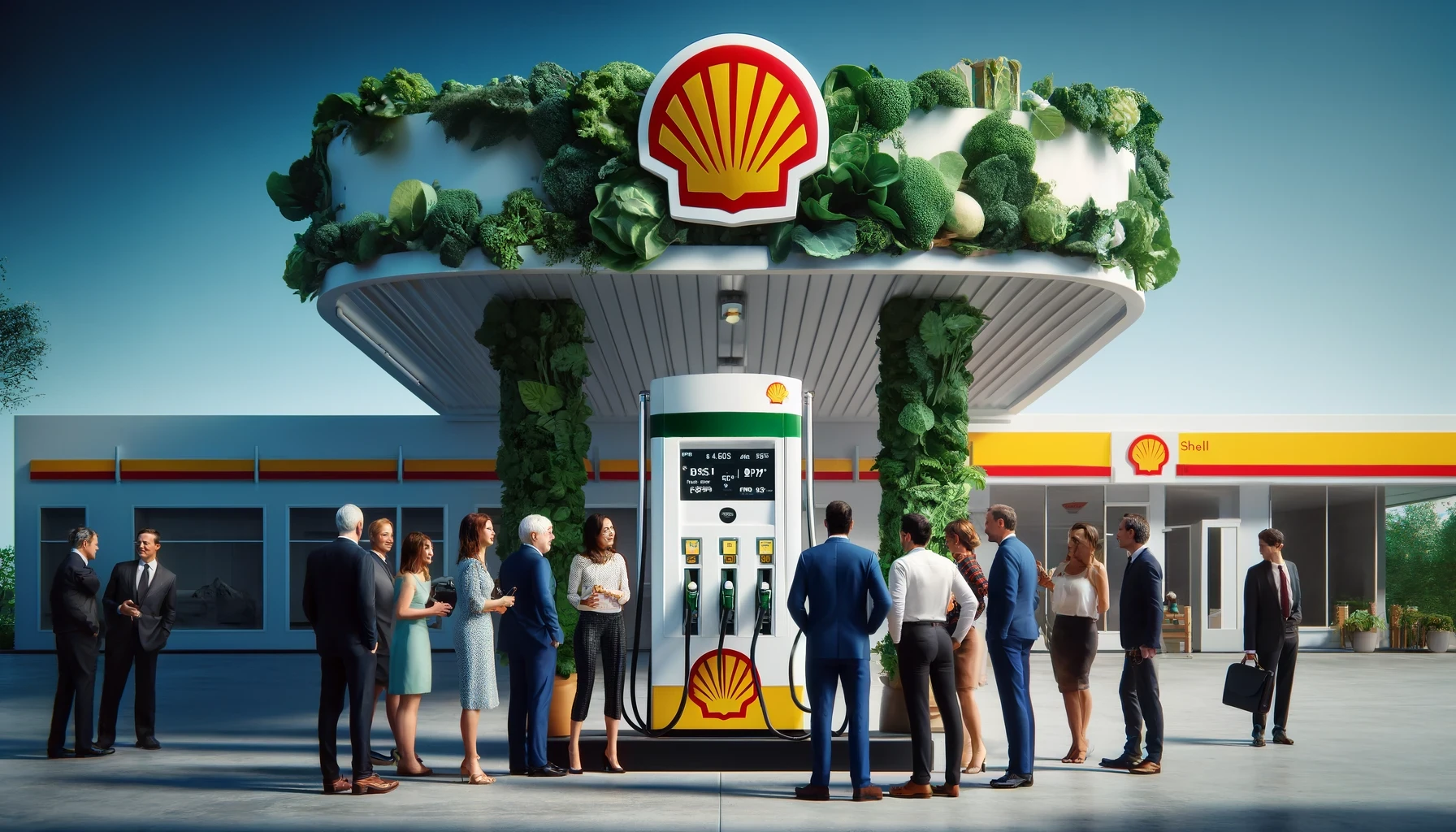In a move that stretches the boundaries of both science and satire, Shell Oil has unveiled a startling new product: “Eco-Friendly Gasoline,” a bizarre blend of traditional fuel infused with everyone’s least-favorite superfood, kale.
Yes, the oil giant is betting that a dash of leafy greens is just what gasoline needs for a sustainability makeover. “It’s the fuel of the future,” proclaims Reginald Revenue, Shell Oil’s enthusiastic CEO. “Kale kerosene delivers the power you need, with a reduced carbon footprint and a hint of antioxidants. Feel good while you fill up!”
The science behind the concoction is, unsurprisingly, as murky as a kale smoothie left out in the sun. Shell scientists suggest that the kale fiber will somehow “optimize combustion,” leading to fewer emissions and a potential boost in fuel efficiency. They also claim that the chlorophyll will lend a pleasing green tint to the exhaust fumes, a visual reminder of your eco-consciousness.
Predictably, both environmentalists and nutritionists are mortified. “This is the worst kind of greenwashing,” fumes environmental activist, Fiona Fauna. “Diluting gasoline with kale might slightly reduce its pollution, but it’s like trying to offset a cheeseburger with a sprig of parsley. Real solutions involve transitioning away from fossil fuels, not absurd gimmicks.”
Nutrition experts are equally unimpressed. “Gasoline is already highly carcinogenic,” points out Dr. Maya Macrobiotic. “Adding kale won’t make it any less of a health hazard. If anything, it could increase the risk of spontaneous combustion with all that volatile fiber.”
Shell, however, assures the public that kale-infused gasoline is completely safe and is already undergoing rigorous testing. (These tests allegedly involve focus groups where drivers are offered complimentary kale salads and fuel discount vouchers.)
Despite the absurdity of the concept, some analysts speculate there may be a method behind Shell’s kale-fueled madness. By proposing an outlandish and unworkable solution, they might be hoping to shift public discourse away from more drastic and impactful measures like investing in renewable energy.
Whether “Eco-Friendly Gasoline” will catch on at the pump or fizzle out faster than overcooked kale remains to be seen. But one thing’s for sure: the concept is a stark reminder of the lengths to which corporations will go to appear environmentally responsible, even when the solutions they propose are utterly ridiculous.

